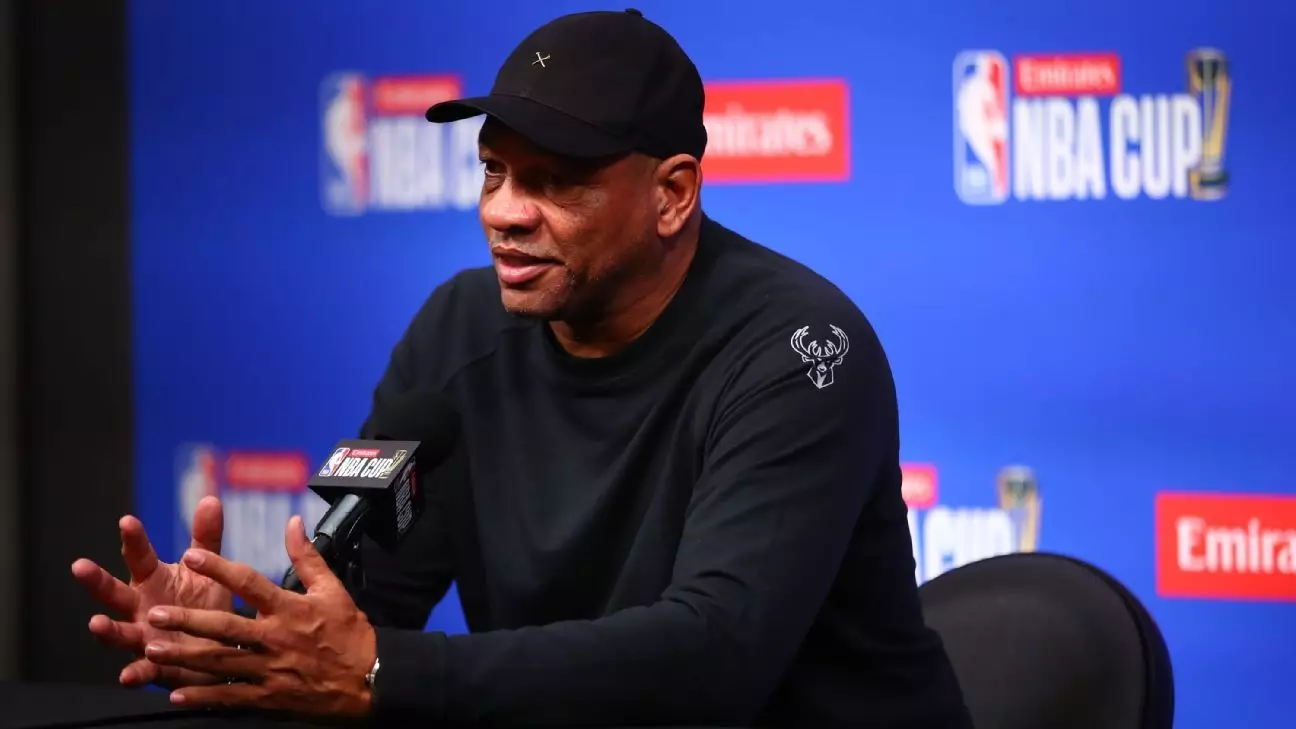The Evolution of Trae Young From Critics to Champions
In the realm of professional sports, perceptions can often diverge drastically from reality. One player who embodies this more than most is Trae Young, the dynamic guard for the Atlanta Hawks. As the NBA Cup semifinals loom, discussions about Young’s growth and his evolving role within his team are heating up among fans and analysts. His journey is a fascinating narrative that combines individual brilliance with team dynamics and leadership transformation.
Reflecting on Trae Young’s journey, it’s hard not to admire how he’s turned criticism into fuel for growth. It’s a story I find deeply relatable, as it mirrors our own personal evolutions in life. Like many of us, Young faced skepticism and doubters, yet he has managed to rise above, proving that perseverance and self-awareness can lead to profound change. His journey is a testament to how embracing challenges can lead to unexpected triumphs.
What I find particularly inspiring about Young’s journey is his ability to forge strong connections with his teammates. This camaraderie doesn’t just happen overnight—it’s built on trust and shared goals. In the kitchen, like on a basketball court, teamwork can turn an ordinary experience into something extraordinary. It’s this parallel that makes Young’s story so compelling; it’s about more than just basketball—it’s about human connection and growth.
Key Takeaways
- Trae Young has transformed from a criticized player into a trusted team leader.
- His evolution highlights the importance of trust and teamwork in achieving success.
- Young’s story underscores the potential for growth when embracing challenges.
- His influence extends beyond personal accolades, impacting his team’s dynamics positively.
The Shift in Trae Young’s Role
The shift in Trae Young’s role within the Atlanta Hawks has been significant. Milwaukee Bucks head coach Doc Rivers recently highlighted this change, noting that Young has earned the trust of his teammates—a critical element in any successful team dynamic. Trust isn’t just an abstract concept; it manifests tangibly on the court as chemistry and collaboration among players. As someone who’s navigated numerous kitchen collaborations myself, I understand how crucial trust is to create magic together.
At 26 years old, Young already boasts three All-Star selections and led the Hawks to the Eastern Conference finals in 2021. Yet, his career was once marred by criticisms of his defensive play and questions about his attitude as a teammate. These critiques could have hindered him, but instead, they became catalysts for introspection and growth—traits that are equally valuable both on the court and in everyday life.

A Season of Change
This current season paints a much different picture of Trae Young. Averaging 21 points and an impressive 12.2 assists per game, his performance speaks volumes about his evolution as a player. His comments about wanting to change perceptions highlight an introspective nature that acknowledges past shortcomings while striving for betterment. This mindset is something we can all relate to—recognizing where we need growth and actively pursuing it is a universal journey.
The Hawks’ strategy reflects a commitment to building a future filled with promise. The roster now includes young talents like Jalen Johnson and Zaccharie Risacher, illustrating a strategic pivot towards nurturing rising stars. Young’s relationship with these new players showcases his leadership evolution; he has embraced a mentor role that empowers others around him. This transition mirrors life outside sports too—where guiding others often leads to shared successes.

Building Momentum
The Hawks’ recent form—winning seven out of their last eight games—highlights Trae Young’s growing influence on the team. Defeating tough opponents like the Cleveland Cavaliers signals not only their current momentum but also Young’s pivotal role in driving this success. His philosophy that winning tends to resolve many issues resonates deeply within professional sports and beyond; it emphasizes how achieving collective goals fosters positivity and unity.
Defensive Awareness
An often overlooked yet crucial aspect of Trae Young’s development is his increasing awareness of basketball’s defensive nuances. Coach Rivers noted how Young has adapted strategically, effectively masking past vulnerabilities through improved communication and tactical play changes. Adapting one’s approach in response to challenges is something we all encounter daily—from solving problems at work to adjusting recipes in cooking.
Quin Snyder, his coach with the Hawks, emphasizes how evolution is intrinsic within sports careers as players adapt over time. He credits Young not only for improving himself but also for elevating younger teammates’ performances through mentorship. This highlights an essential truth applicable in various fields: when individuals collaborate as part of cohesive units rather than focusing solely on personal achievements, incredible things can happen.
Final Thoughts
The narrative around Trae Young continues its transformation—from being seen purely as an offensive powerhouse capable of dazzling plays—to now being recognized as integral to Atlanta Hawks’ aspirations towards becoming formidable contenders again this season! The growing trust among players alongside leadership roles assumed by veterans like himself demonstrate maturation processes occurring off-court too: fostering environments where everyone thrives collectively rather than chasing individual glory alone leads towards sustainable success stories worth celebrating!
As fans eagerly watch how far Atlanta goes during NBA Cup semifinals—and beyond—it becomes clear that greatness within sports involves much more than accumulating accolades or breaking records: it requires cultivating cultures filled with teamwork & resilience so everyone benefits equally from shared victories achieved together!
Trae Young
NBA evolution
Atlanta Hawks leadership
team dynamics


Leave a Reply